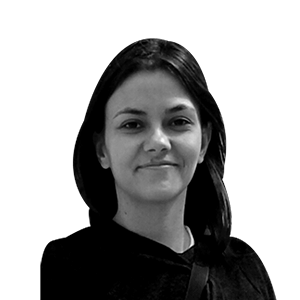The global challenges that will test Leo XIV's leadership
One of the challenges will be trying to rebuild ties with Tel Aviv, which has clashed with Pope Francis over his criticism of the Gaza war.


Rome"Peace be with you all." So the pontificate of Leo XIV began. Standing on the balcony of St. Peter's Basilica in the Vatican, the new spiritual leader of 1.4 billion Catholics launched a plea for peace in his first address to the world. "An unarmed peace," he urged. Despite his affable face and almost trembling voice, the new pope's political program was already evident in his speech. In these turbulent times, the American pontiff's priority will be to achieve an end to conflicts. An ambitious goal that will test the leadership of Francis's successor.
This relentless pursuit of peace marks an element of continuity with the Argentine pope's pontificate, especially in Ukraine and the Middle East, where Vatican diplomacy has failed to stop the bloodshedAnd it's not for lack of initiative. With Russia's first attack on Ukraine in February 2022, the diplomatic machinery led by Secretary of State Pietro Parolin was set in motion to try to stop the offensive. "The Holy See is ready to do anything for peace," Francis said at the time. And just 24 hours after the first Russian missile fell on Kiev, he made a surprise visit to the Russian embassy to the Holy See.
In these three years of conflict, the Vatican has sent several cardinals to Kiev and Moscow to engage with local representatives of the Orthodox Church, but no mediation initiatives, not even the moral authority enjoyed by the Argentine pontiff, have managed to stem the escalation. Francis died without seeing his wish to visit the country devastated by the Russian invasion fulfilled. The pontiff stated that he was willing to travel to Kiev, but on the condition that he also go to Moscow. "I'm going to both places or neither," he said in an interview. He was convinced that he had to maintain a certain neutrality even if this brought him strong criticism.
"Ukraine deeply appreciates the consistent position of the Holy See in upholding international law, condemning the military aggression of the Russian Federation against Ukraine, and protecting the rights of innocent civilians," Ukrainian President Volodymyr Zelensky acknowledged in his congratulatory message following the ruling. "We look forward to the Vatican's continued moral and spiritual support for Ukraine's efforts to restore justice and achieve lasting peace," he added.
On the same day that Cardinal Robert Prevost became Pope Leo XIV, 3,000 kilometers away from Rome in Moscow, Vladimir Putin received Chinese President Xi Jinping at the KremlinThe Kremlin leader also sent a congratulatory message, expressing confidence that the constructive dialogue and interaction established between Russia and the Vatican would continue to develop on the basis of the Christian values that unite them.
Rebuilding ties with Israel
The war between Ukraine and Russia will undoubtedly be one of the most delicate geopolitical challenges facing Leo XVI. Outside of Europe, the American pope will have to try to rebuild diplomatic ties with Israel, which even canceled a message of condolence after the death of Pope Francis in retaliation for the Argentine Jesuit's repeated messages calling for an end to the Israeli operation in Gaza and denouncing the bombing of the Palestinian enclave. In fact, until the last moment, Tel Aviv did not confirm the dispatch of its ambassador to the Holy See as the sole diplomatic representative at the Argentine pontiff's funeral.
"We hope to improve relations between Israel and the Holy See and strengthen the friendship between Jews and Christians in the Holy Land and around the world," said Israeli President Isaac Herzog after the election of Leo XIV, while his prime minister, less conciliatory, turned to Benjamin Netanya.
Prevost's home country responded enthusiastically to the appointment of the first American pope. A historic event that breaks with a centuries-old tradition. At this historic moment of heightened international tensions, the two most influential people in the world were born in the United States. But it remains to be seen whether Leo XIV's origins will influence the always delicate diplomatic relations between the Vatican and the White House, especially when Donald Trump sits in the Oval Office.
Dialogue with Beijing
Of all the open fronts, one of the most immediate that the Pope will have to address is the Chinese challenge. Beijing officially congratulated Leo XIV and expressed its hope that the Vatican will maintain a "constructive" attitude in the dialogue between the two countries, which have not maintained diplomatic relations since 1951. Since then, in China, the more than twelve million Catholics have been divided between those belonging to the Patrio Association and the authority of the Pope, and the Catholics faithful to Rome, who are persecuted. In 2018, Francis promoted a historic agreement allowing both parties to participate in the appointment of bishops, which was widely criticized by some for considering it a concession to Beijing.
Although the Argentine pontiff always defended the agreement—which is periodically renewed—as a diplomatic success, the truth is that relations between the two countries seem to be at an impasse. Beijing has appointed two new bishops since Francis's death, during the period of his vacancy, and did not send a representative to his funeral or allow any Chinese bishops to attend, raising some doubts about the regime's true intentions. "It's a good agreement, but the Vatican expected more important steps in these years, such as a trip by the Pope to China," sinologist Francesco Sisci tells ARA. The question is whether Leo XIV will be the first pope to set foot in the communist country.

